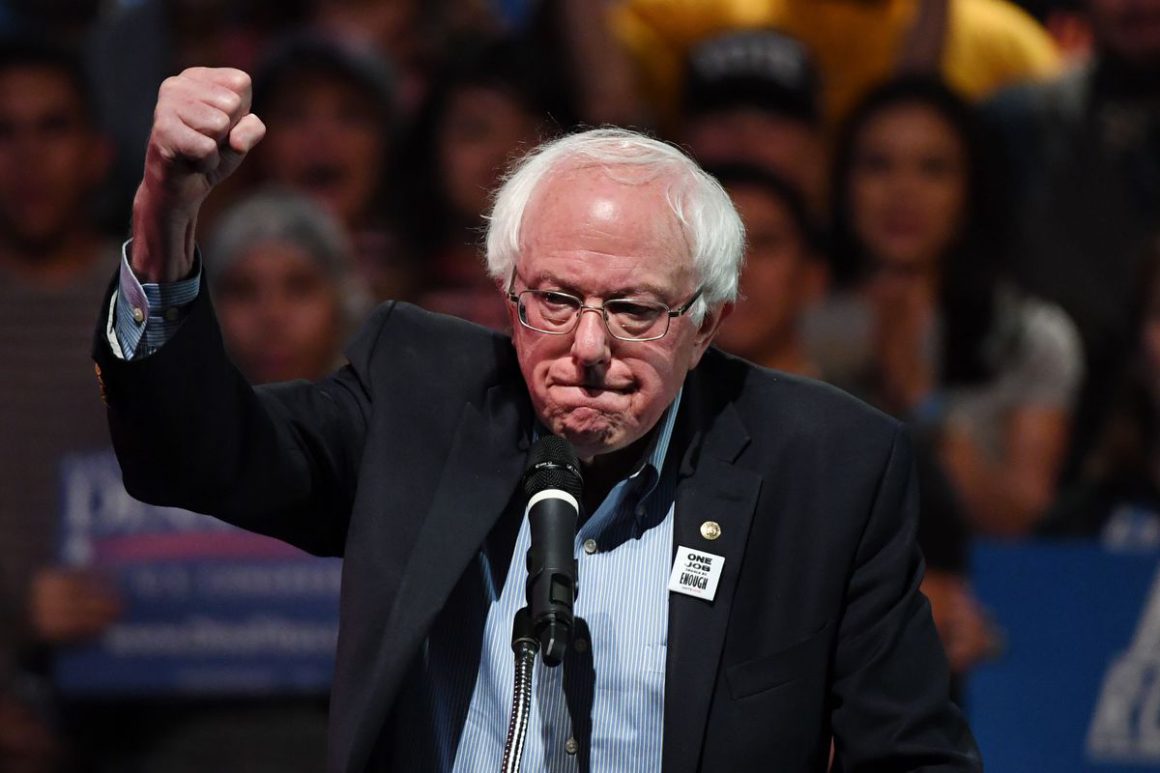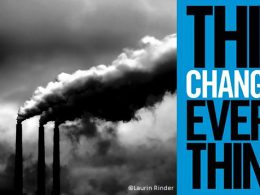It’s Okay to Be Angry About Capitalism
by Bernie Sanders
Allen Lane, 2023
Reviewed by David Vallely
Bernie Sanders’ two runs for President of the United States as a self-described democratic socialist played an important role in rallying millions of workers, youth, and oppressed people to a radical platform of social and economic justice.
A new book by Sanders – It’s OK to be Angry About Capitalism – promises to be “a progressive takedown of the uber-capitalist status quo that has enriched millionaires and billionaires at the expense of the working class, and a blueprint for what transformational change would actually look like.”
Sounds good, but is it?
First off, it is very refreshing to see someone with a platform like Sanders speak so clearly about the working class and about the “class war” being waged by the rich against everyone else. Sanders clearly remains deeply affected by the injustices of life under capitalism in the US. Page after page lists a litany of the hardships endured by ordinary people.
However, co-written by John Nichols, the book bears little resemblance to Sanders’ impassioned speeches which inspired so many on the campaign trail in 2016 and 2020. Instead, it reads as a stale defence of working with the machine now, rather than against it.
The book starts with a chapter recounting the 2020 Democratic primaries. Sanders won the first three primary states, the first time any candidate had ever accomplished this feat.
This terrified the US ruling class. That momentum had to be blunted, and the Democratic establishment moved with might and main to ensure this happened. Sanders recounts the “debacle” of the Iowa primary where the Democratic organisation appeared incapable of counting the votes and the media were able to portray Pete Buttigieg as the winner. Then there was the choreography around “Super Tuesday” where a slew of candidates dropped out and endorsed Joe Biden in order to catapult Biden into the lead.
Sanders dropped out of the Democratic primaries and the presidential election just as the Covid pandemic took hold. At the very moment that his demand of ‘Medicare for All’ was of the most critical importance, with 87 million Americans facing into an unprecedented health emergency uninsured or underinsured – he instead endorsed the establishment nominee: Joe Biden.
Sanders often begs us over the course of the book to think big, but he himself is guilty of thinking too small, for example when arguing that “today, we have a strongly entrenched and well-funded two-party system. Could that change in the foreseeable future? Maybe. But not tomorrow. That means that, if we are going to bring about the kind of change this country desperately needs… we need to completely transform the Democratic Party – from the bottom on up.”
Sanders likes to say how, as President, he wouldn’t just have been the Commander-in-Chief, but the “Organizer-in-Chief”. But beyond expressing solidarity with striking workers on pickets, he does little to outline how he would organise. Even now, imagine the resources Sanders, with his base, would be able to commit if he took a similar position to Socialist Alternative and Seattle councilmember Kshama Sawant who have launched the nationwide Workers Strike Back rank-and-file organising campaign? How might this forge the outline of a new working-class party in the US?
Sanders’ conception of a “political revolution” is seemingly to return to the politics of the New Deal or LBJ’s ‘Great Society’. While the book title refers to capitalism, throughout the text he always describes the system as either “uber-capitalism” or “unfettered capitalism”. It’s as if he holds out hope of returning to a better, more humane capitalism.
But this is to profoundly misjudge the nature of the system, and also the political environment then and now – openness to an alternative to capitalism is clearly growing. Sanders is able to connect the growth in inequality and the weakness of the US labour movement to Reagan’s smashing of the air traffic controllers’ union, PATCO, in 1981. But what was the spur for this offensive by the Reagan regime? Was it simply bad politics or a reflection of the political imperatives that flowed from the crisis of profitability capitalism faced in the 1970s?
Capitalism had to make the working class pay to maintain the system, so it had to try to smash the organised working class. This wasn’t simply a US phenomenon, as neoliberalism spread throughout the world. And, the first two chapters of this book are ample evidence that the Democratic Party is firmly held in hock to this ideology by big business and the super-rich who fund them.
It’s enough to quote Sanders in conclusion:
“The sad truth is that, if you boil it down, the essence of the Democratic message in recent years has been: ‘We’re pretty bad, but Republicans are worse. So vote for us. We’re the lesser of two evils!’ Given the reality of the Republican Party today – their growing attacks on democracy and women’s rights, their abysmal record on climate change and the environment, their support for tax breaks for the rich and cuts in programs for working families and the poor – there’s more than a grain of truth in that message…
“[But] it doesn’t recognize that, when the oligarchs and the corporate world are waging class war against working Americans, the working class needs a party that will fight back. And win.”
On this point we can agree, but the verdict we draw from Sanders’ own experience is that that party cannot be the Democratic Party.












